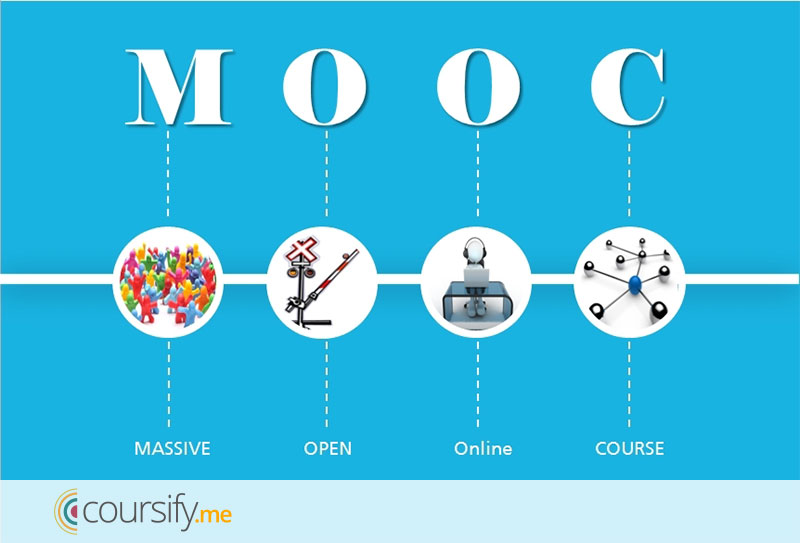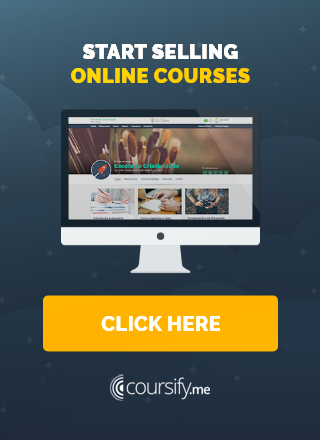MOOC: free learning
MOOC – Massive Open Online Courses, are, as the name already speak, online courses free and available to all. A strong tendency in Distance Education, learn what makes the MOOC be so special and sought.
What is MOOC?
The first MOOC was created in 2008, by George Siemens and Stephen Downes, from the University of Manitoba, Canada. The course “connectivism and connective knowledge/2008” has been made available for twenty-five paying students of the University and to other 2300 students who were able to participate for free online over twelve weeks.
While there isn’t a joint definition about what is a MOOC, two basic characteristics deserve to be highlighted:
- Open access: To participate in a MOOC you do not need to be a student actually enrolled in a school, and there is no need to pay any fee. Although there may be maintenance costs, in principle are completely free and open to any kind of public.
- Scalability: Many traditional courses depend on a number of participants and some teachers to start. However, the motion of the MOOC in being massive, so the course is designed to withstand an indefinite number of participants.
Keeping the fundamental characteristics of an online course, a MOOC is available 24 hours a day, seven days per week, so that you can make the lessons and activities in time and place that are best for you.
However, one of its first differences (in spite of not being rule to all MOOCs), there are tasks that must be delivered every week, within the deadlines set, if you want to receive a certificate of completion (if applicable).
According to Peter Norvig, Director of Google searches, professor of Artificial Intelligence at Stanford University and author of one of the first MOOCs, “In many online lessons videos are always available. People can watch them when they want. But if they can do so at any time, means that they can do this tomorrow, and if you can do this tomorrow… well, perhaps never resolve to do.”
Another interesting factor are the valuation techniques. To enable the evaluation of papers written by tens of thousands of students, the solution adopted by the MOOC is the peer-assessment, or “peer review”. Each time a student delivers a work, he have to evaluate the work of some other students. “Studies show that peer assessment is a strategy surprisingly efficient to obtain correct notes.”, says Daphne Koller, co-founder of Coursera.
Many top universities have joined and organized several platforms to extend the offer of this type of free online education: Harvard, Yale and Oxford are only some of the institutions that are involved in this process.
Currently, the majority of MOOCs are in English, only a few courses have subtitles in Portuguese. But with the steady growth of the market for online courses in Brazil, this reality is about to change.
MOOC in Brazil
In Brazil, the first MOOC initiative was launched by Universidade Estadual Paulista “Júlio de Mesquita Filho” (UNESP) on 14 June 2012 with the name Unesp Aberta. The platform offers free content and didactic materials of courses of undergraduate, postgraduate and extension of the University, produced in digital format in partnership with the Center for Distance Education of the University (NEaD) for anyone with access to the Internet in Brazil and in the world. More than 37.400 people have already registered to perform one of these courses and the platform has already been viewed more than 1 million 600 thousand times.
The first MOOC in Portuguese language was the MOOC EaD on Distance Education, coordinated by Professors João Mattar and Paulo Simões with the support of the TIDD – Graduate Program in Technologies of Intelligence and Digital Design of the Pontifical Catholic University of São Paulo (PUC-SP) and ABED – Brazilian Association of Distance Education, held in the second half of 2012.
The main objective of this method of teaching is to enable anyone to study, learn about new fields of interest and/or enhance skills that may be useful for your study or work.
ELearning platform (LMS), the Coursify.me provides access to online courses that cover a wide range of issues, in addition to offering free hosting for instructors who want to disclose their content. If you are interested, please visit our website or send an email to help@coursify.me. Start using our platform today to learn and teach online.


